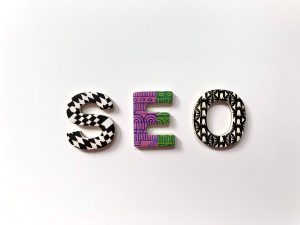What Is Digital Marketing?
I really love the way Lucy Alexander at HubSpot defines digital marketing. She says, “Digital marketing encompasses all marketing efforts that use an electronic device or the internet. Business leverage digital channels such as search engines, social media, email, and their websites to connect with current and prospective customers”. This definition in my opinion provides a complete understanding of the concept of digital marketing.
Difference between Digital Marketing and Online Marketing
Evolution of Digital Marketing by Ditital Vidya
Don’t get confused though when you come across online marketing. Online marketing is a subset of digital marketing and only deals with marketing that happens when a live internet connection is involved but, in most cases, they are used interchangeably. For the most part, what really matters is that you understand what impact they will both have on your overall marketing plan.
Evolution of Digital Marketing
The image below from Simplilearn shows the evolution of digital marketing since the 1990s. If you want to know more about the history of digital marketing check out this article by Shivendra Tiwari www.digitalvidya.com/blog/history-of-digital-marketing
Why Digital Marketing?
In an age where we spend most of our time on our devices and social media, it is so easy to see the importance of businesses using digital marketing channels and the impact it has on such businesses. It makes a lot of sense to get people where they spend the most time and money.
In 2018, the average internet user has at least 7 social media accounts from…. That’s up from 3 accounts just about 5 years ago. Our devices and social media have been integrated into almost if not everything people do today including school, work, entertainment, hanging out among many others.
Digital marketing also helps small businesses and startups offer some form of competition to large companies. Small companies have much smaller advertising budgets and would therefore need an edge to be able to compete with much larger companies. Managed efficiently with proper control and utilizing data to help support decision-making, small businesses can make smarter decisions.
There are gazillion amounts of data available today and it can sometimes be overwhelming which to listen to or use in your decision-making process but “with great data comes great opportunities”. We’ve never had so many data as we do today. We can find out about a lot like who is most interested in your ads, what they like, what they are like, what makes them more likely to take an action, who is easiest to convert, who spends more, what terms do they use to find you online and so much more information.
Digital Marketing Channels
Regardless of whatever you want to do with digital marketing, you need to carve out a plan for your goals. Broadly, digital marketing takes on about nine (9) common forms. They include;
- Search Engine Optimization (SEO): According to Wikipedia, SEO is “the process of affecting the visibility of a website or a web page in a search engine’s unpaid results.” In simpler terms it is the way you make your website or web post one of the top results whenever someone searches for certain keywords. It is one of the most important forms of digital marketing as most people looking to purchase a product or service start their journey on search engines
- Search Engine Marketing (SEM): SEM generally refers to paid search marketing. In this case businesses pay Google to show their ads when a user makes a search. The main difference between SEO and SEM is the paid and unpaid factor. SEO is an earned effort based on having relevant content for a given keyword search. Before choosing keywords to use in your campaigns, it is important to conduct comprehensive research.
- Social Media Marketing (SMM): Put simply, social media marketing is using social media platforms (Facebook, Twitter, Instagram and the many others) to promote a product or service. Although it is not limited to just that, it could also be used to engage with customers and gain feedback about your business.
- Content Marketing: Content marketing is the practice of delivering quality piece of content to your users to generate sales, leads, to keep your users engaged and/or educated, to build brand recognition or to build trust. Content marketing is usually a collaborative effort with other forms of digital marketing. Keep your customers in mind when creating your content and make sure to create good quality content.
- E-mail Marketing: This involves updating your email subscribers about your business. It helps build a great relationship with your customers by building trust and brand loyalty. People that choose to subscribe to your email list are usually more likely to become active buyers.
- Affiliate Marketing: This works like hiring a sales person for your product or service. It involves paying for conversions from an affiliate. The affiliate earns some commission for providing a conversion. Bloggers and e-commerce websites commonly make use of affiliate marketing.
- Viral Marketing: As the name implies its something that spreads so fast and far over a short time. It refers to posts that are funny, strange or trendy enough to get a massive amount of attention online. This is usually hard to do.
- Influencer Marketing: This is a new kind of marketing and involves utilizing people who have huge online reach. It is most popular on social media platforms like Twitter, Instagram and Snapchat. Basically, they put up some content about your product on their platforms to help drive traffic towards your business. Be careful when you decide to involve with influencers though, some of them have a lot of fake followers that won’t benefit you or your business in any way.
- Mobile Phone Advertising: Every form of marketing can happen on a mobile phone, but some are peculiar to mobile devices like SMS advertising. You could send updates, promotions and offers to your consumers from your company.
Let’s Wrap It Up
Digital marketing is a very essential tool to help businesses reach out to customers (current and prospective) and a deep understanding of how it works and practices employing is necessary to get the very best out of it. Find out what is peculiar to your business and what you need to get it out there, the methods you need to employ and the tools you need and you’re on your way to improving and maximizing your business results. Share your thoughts in the comments below.




